Air Pollution In Iran’s Main Cities At Dangerous Levels
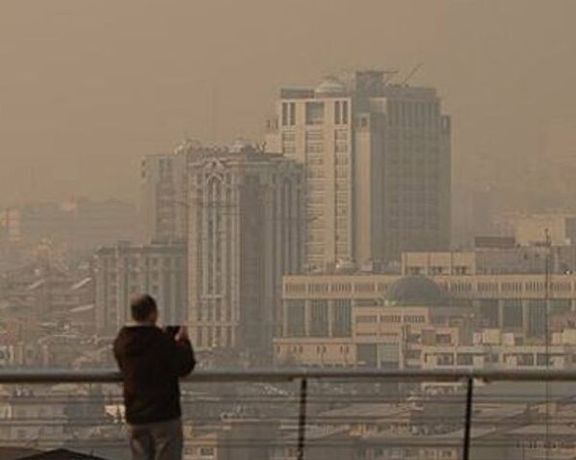
Iran says air pollution in industrial cities will continue until Thursday, and the northeastern city of Mashhad is currently the most polluted city in the country.

Iran says air pollution in industrial cities will continue until Thursday, and the northeastern city of Mashhad is currently the most polluted city in the country.
Sadeq Ziyaian, Head of National Center for Forecasting and Crisis Management announced Tuesday that "air pollution will continue in industrial and densely populated cities,” after weeks of dangerous levels of pollutants in the air.
The northeastern city of Mashhad, as the most polluted metropolis, with a pollutant index of 154, was placed in an unhealthy category for "everyone". The situation in Esfahan in central Iran is equally dangerous with a pollutant index of 153.
Tehran, Karaj, Ahvaz and Tabriz are at the top of the industrial cities that experience air pollution.
Based on the approval of Tehran Air Pollution Emergency Committee, schools in all cities of the province were shut on Tuesday.
Experts say the reason for the high concentration of air pollutants is burning mazut, a dirty fuel, instead of natural gas in thermal power plants.
Mazut -- commonly called waste oil -- is a heavy, low quality fuel oil, only used when the facilities to blend or break it down into more conventional petrochemicals such as diesel are not available.
Iran has the world’s second largest natural gas deposits but is unable to boost production because it lacks capital and Western technology. It needs to invest $40 billion in modernizing and expanding its gas fields, but most are in the Persian Gulf and need Western technology.
Due to its anti-West foreign policy and an expanding nuclear program, Iran is under US sanctions and cannot borrow money or technology from the West.
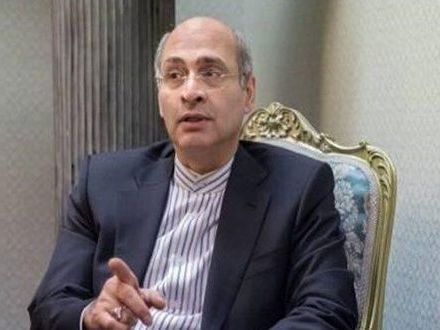
As reactions by European countries to the execution of British Iranian citizen Alireza Akbari continue, the Dutch foreign ministry summoned the Iranian ambassador Monday to deliver a protest.
Like other European capitals, Amsterdam expressed its displeasure and protest to Iran's Ambassador Alireza Kazemi Abadi.
This is at least the third time in the past month that the Iranian ambassador to the Netherlands has been summoned. Since Iran began executing detained protesters in December, the ministry of foreign affairs of the Netherlands has protested to Tehran.
Alireza Akbari, a dual national, and a former top employee of Iran’s ministry of defense was executed Saturday on espionage charges.
Britain called the execution a barbaric act immediately after the announcement by Iran on Saturday and said it would not go unpunished.
French President Emmanuel Macron said Akbari’s execution is a heinous and barbaric act.
Iran’s action triggered a major escalation in tensions between the West and the Islamic Republic, which were already sour over Tehran’s crackdown on nationwide antigovernment protests and its military support for Russia’s invasion of Ukraine.
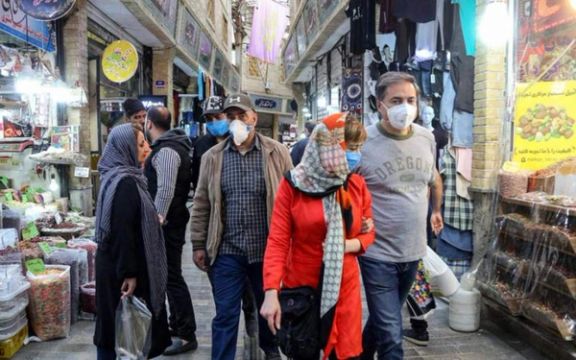
Iran’s new budget will raise taxes by 59 percent in the new Iranian year starting March, a staggering burden on its people amid high inflation and growing poverty.
The total tax revenues planned in the draft budget will surpass $20 billion based on the current rate of exchange. In Iranian currency, however, this is a staggering 8.3 quadrillion rials – that is with 15 zeros.
Local media and experts point out that most of the tax will be collected from ordinary citizens and private businesses, as the gigantic government and semi-public sector enjoys a variety of tax exemptions.
Despite the huge tax bill for the people, the government budget will still have 50-percent deficit, due to a chaotic downturn in the economy mainly triggered by US sanctions on its oil exports and international banking.
The 59-percent jump in planned tax collection means that taxpayers have to pay at least 10 percent more than the estimated 50-percent annual inflation rate.
While the hardliner government wants to collect more taxes, it has increased appropriations for inefficient state-sector companies by 40 percent, and for military and police forces, prisons, as well as propaganda outfits.
In the current Iranian calendar year, the government also increased taxes but has not been able to meet its tax revenue goals. Partial estimates put the amount of actual taxes collected in the early months of the year at about 60 percent of budget projections.
There also other unrealistic revenue projections in the draft bill. The new budget is based on 1.4 million barrels of oil exports per day, while currently Iran exports less than one million barrels a day. With US sanctions in place, it is not clear how Tehran plans to increase exports by almost 50 percent.
The discrepancy between reality and budget estimates gets even more interesting as the government expects to sell each barrel of oil for $85. This would mean more than $43 billion in oil revenues from March 2023 to March 2024.
However, Iran sells its oil clandestinely mostly to China with hefty discounts, estimated at less than $40 per barrel. Current average crude prices are around $80 and with a mild recession expected in 2023, prices would likely not increase substantially.
Agreement with the United States over its nuclear program can lift the sanctions and only in that case Iran can sell around 1.5 million barrels a day, but a deal seems much more unlikely now than a year ago when talks were still taking place in Vienna to revive an earlier nuclear accord known as the JCPOA.
Formal negotiations ended in March 2022 after the Russian invasion of Ukraine and the last attempts by the European Union to broker a deal fell apart in September.
Iranian commentators and experts regard the current budget as unrealistic and the high taxes as cruel for a population whose purchasing power has declined dramatically since 2018 when Washington abandoned the JCPOA and imposed sanctions.
The Iranian currency rial has lost its value by more than tenfold in five years, making imports of food and other essential necessities equally expensive for consumers.
Amir Hossein Mahmoudi, an investment expert in Tehran told Aftab News website on Monday that “The new budget is at least 40-percent higher than the current one and the deficit stands at around 50 percent.” He added that this sort of a budget “will not send positive pulses to the capital market and
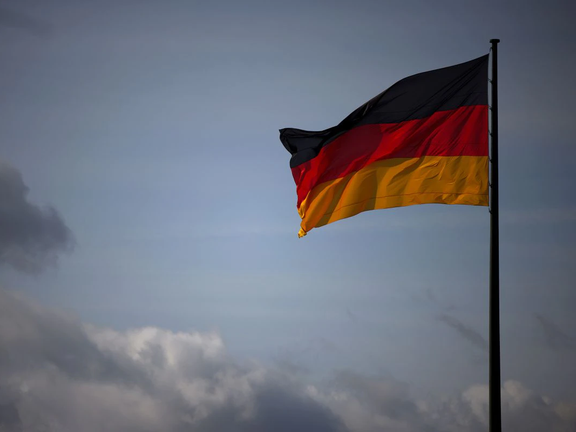
Iranian media say a German national has been detained in the southern Khuzestan province while "photographing sensitive centers".
Jam-e Jam daily, which is owned by Iran's state broadcaster, reported Tuesday that the person was arrested while taking photos of Omidiyeh oil facilities.
Omidiyeh is home to the Aghajari oil field which is owned by National Iranian Oil Company (NIOC) and operated by National Iranian South Oil Company.
No other details have been published yet, but Jam-e Jam has told it will report more on the issue later.
After the outbreak of protests over the death in custody of Mahsa Amini in mid-September, Iran had detained tens of foreign nationals including those from France, Germany, Italy, Poland and the Netherlands.
Following Supreme Leader Ali Khamenei’s lead, Iranian officials claim the ongoing anti-government protests across Iran are instigated by foreign enemies.
Germany and other European countries have slammed Iran's killing of protesters and increased human rights violations, with proposed plans to designate the Revolutionary Guard as a terrorist organization across Europe.
Meanwhile, several foreigners visiting Iran have also disappeared, confirming earlier reports that the Islamic Republic is taking foreign citizens hostage.
Tehran denies any policy of hostage taking and insists all foreigners are tried according to legal process. However, it has frequently shown readiness for prisoner exchanges and participated in swaps in the past.
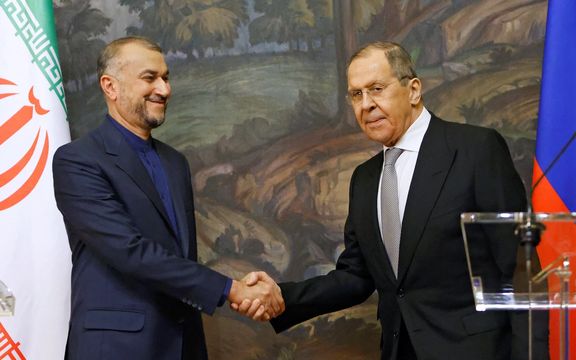
A meeting between the foreign ministers of Iran and Russia, planned to be held in Moscow on Tuesday has been postponed and Hossein Amir-Abdollahian has left for Turkey.
At the same time, an aide to the Russian president Vladimir Putin met with the Ali Shamkhani, secretary of the Supreme National Security Council of the Islamic Republic in Tehran.
Russia, Turkey and Syria have launched diplomatic efforts for an agreement to improve Ankara-Damascus relations, after years of tensions during the Syrian civil war, but Iran has not been invited to take part.
TASS news agency announced that talks between Sergey Lavrov and Hossein Amir-Abdollahian, which were scheduled for January 17, have been postponed "by agreement of the parties".
No explanation was provided about the reasons, but Maria Zakharova, Spokesperson of the Russian Foreign Ministry said earlier that Lavrov and Amir-Abdollahian were going to discuss the JCPOA, cooperation in the United Nations and the Shanghai Cooperation Organization, the situation in Syria, Afghanistan, and other issues.
Meanwhile, Nournews website reported that Putin Aide Igor Levitin met with Shamkhani Tuesday morning.
The details of the meeting have not been reported yet.
The US State Department said last week that Iran is the most important source of security assistance to Russia and that the military relations between Tehran and Moscow have strengthened in the last few months.
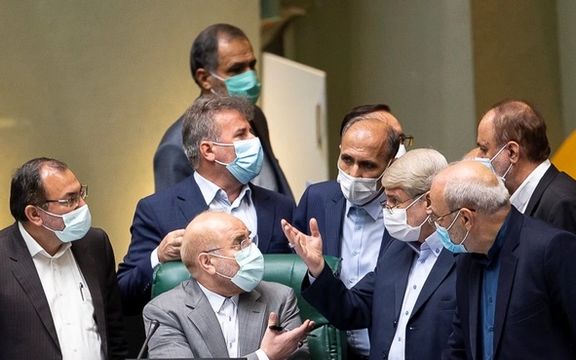
A top Iranian economist has slammed Iran’s so-called five-year developmental plan as meaningless amid overall instability, calling it a bureaucratic exercise.
Well-known economist and academic Mohsen Renani rejected an invitation by the Iranian Parliament's Research Center to work on a new 5-year plan. He said: "I have seen the outlook plan prepared by the Speaker of the Parliament. It is full of wishful thinking without considering the country's ongoing crisis and its potentials. That guarantees the plan's failure."
The economist pointed out that "The government is doing whatever it likes and at the same time writing its own development plan. In my opinion a development plan is meant to promote the economy from a stable lower level stable higher-level. So, a development plan will be meaningful only when a country has stable economic, social and political situation with a promising and reassuring outlook. When we do not have this situation, drawing a development plan would be meaningless."
Renani pointed out that what Iran needs currently is a way out of the ongoing crisis and a solution to bring about stability. "How can we think of a development plan when the rate of exchange for US dollar is likely to reach 500 thousand rials by late March? The situation of government revenues is not clear, the shadow of the war in Ukraine is getting closer to us every day, the talks on JCPOA are terminated, the government is losing its public credibility which is at its lowest level in four decades and capital flight from Iran is gaining momentum." he asked.
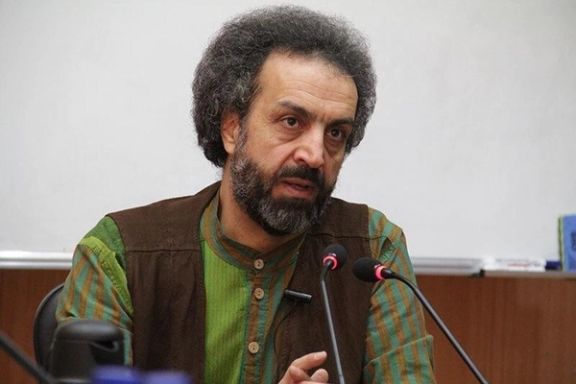
Meanwhile, Prominent Iranian cleric Ayatollah Abdollah Javadi Amoli has said in a critical comment about the Iranian government's behavior: "As long as officials are inefficient and astronomical embezzlements take place, we will most certainly fail."
He added: "We should stay away from wrongdoing, and we should advise others who listen to us not to do anything wrong."
In another controversial comment that mentioned killing of students in schools, people in the streets and the execution of young protesters , Javadi Amoli said "killing children will not help the government," moderate Aftab News reported.
He added: "The economy is a main pillar of the state. A poor nation is like a man without a spine. We need to have money in our pockets if we want to live a decent life."
Meanwhile, a report by the Parliament's Research Center published on Monday said that its researchers believe based on the proposed annual budget bill, that the inflation rate is likely to remain well above 40 percent.
On Wednesday, Ali Khomeini, a great grandchild of the founder of the Islamic Republic warned Iranian officials about the social and economic divides between them and the people as a result of religious pressure on citizens by the hardliners who regard themselves more Muslim than others.
In another development, Ahmad Alireza Beigi, a lawmaker from Tabriz said that a majority of Iranians have no representative in the parliament. In an interview with ILNA, he regretted that in many cases what the Parliament says and wants is miles apart from what the people demand.
He said, "the people are sulking with the government as we are facing a representation crisis in Iran." Meanwhile, referring to demands for changes in the government's economic team as a way of improving the economy, he added that the "Iranian economy is like a broken vehicle, changing the driver will not make any difference."